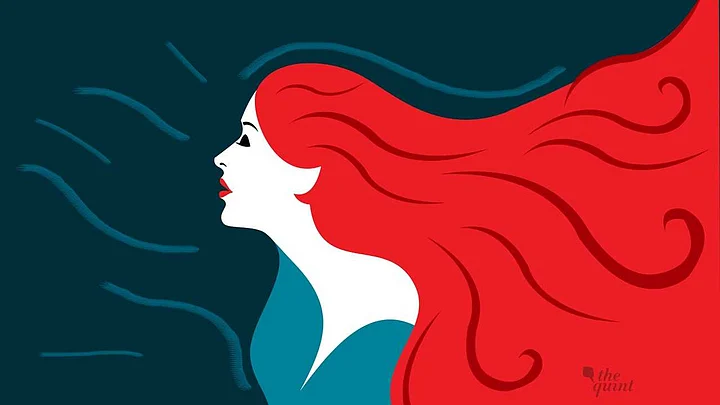Today marks the fifth anniversary of 16 December 2012, when Jyoti Singh, a 23-year-old medical student, better known as Nirbhaya, was brutally gangraped – and died of her grievous injuries – in a moving bus in Delhi. The Nirbhaya case is one of those few cases that attracted widespread media attention and led to rape laws being made more stringent.
Five years have passed. But can we say confidently that there will never be another Nirbhaya?
One can have different views on whether after the Nirbhaya reforms, cities are safer for women or not, but one thing remains unchanged: After every rape or sexual harassment case which garners nationwide outrage, politicians and policymakers resort to temporary solutions to pacify citizens.
However, it must be noted that rape is not a random event. It is an outcome of multiple factors in interaction with each other, the process of which keeps on repeating. And at a broader level, the issue of rape needs to be tackled from a multidimensional approach rather than using piecemeal approaches such as more CCTV cameras, lighting up streets, constituting countless commissions for relooking at laws, etc.
Here is a list of issues which play a role in the causal chain of rapes, each of them being critically important in tackling the menace.
Lack of Efficient Public Transport
After watching a movie at Select City Walk, Saket, Nirbhaya tried to board an auto to return home, but all autowallahs refused to go, due to which she had to board that bus. Had an auto agreed to go, would she have been alive? Probably. Thus, from a broader perspective, lack of efficient and safe public transport systems was a critical factor in endangering Nirbhaya’s life. Countless debates and efforts have been made by advocacy NGOs and civil society organisations regarding the need for safe and efficient public transport systems, but not much has changed.
Gender Bias And Discrimination
During the bus ride, the rapists assumed that she was a ‘characterless’ girl as she was out with a man late at night. In the BBC documentary ‘India’s Daughter’, one of the convicts Mukesh Singh, who was interviewed, said, “A decent girl won't roam around at nine o'clock at night. A girl is far more responsible for rape than a boy.”
Just because Jyoti was with a male friend at late night, Mukesh thought that she deserved to be raped. There is no easy answer to how to change such mindsets though several organisations and NGOs have been working with communities for decades.
Lack of an Efficient and Gender-Sensitive Police Force
Ask anyone about challenges faced by women in fighting crimes, the most commonly cited problem would be the lackadaisical attitude and derogatory behavior of police personnel.
Recently, a policeman’s daughter was gangraped in Bhopal and he had great difficulties in filing an FIR against the culprits. Only after social media outrage was the case was taken seriously. Till a woman feels safe and confident to report a rape without being fearful of judgement or victim-blaming, we cannot lay any claim to be a safe country.
“Stringent implementation of laws and strict policing will help, but the real change will come when abusers and rapists are consistently convicted for their crimes, survivors are not doubted, judged or shamed,” says Preethi Pinto, Program Coordinator on Prevention of Violence against Women and Children at Mumbai-based SNEHA (Society for Nutrition, Education and Health Action), as reported by media portal IndiaSpend. In 2016, one in four rape cases in India ended in conviction – the lowest since 2012–according to national crime data.
Judicial Progress
Despite attracting nationwide outrage and attention, it took around five years for the final convictions in the Nirbhaya case. This itself is an indicator of how our judiciary is terribly slow due to overburdened courts and lack of adequate judges. One can only imagine the condition of cases which don’t get the kind of media attention Nirbhaya did. Without fast-track trials and timely convictions, it is difficult to prevent rapes. India needs more than 70,000 judges to clear pending cases, which highlights the severe shortage.
Recognition of Rape Statistics
While Nirbhaya was raped by strangers, 95% of rapes in India are committed by a person known to the victim. Therefore, the governments’ piecemeal approaches of restricting women’s movements, more policing in buses and installing CCTVs fall flat. I have no magic bullet to solve this issue, but before any solution, it is critical that governments recognise that a woman is more at risk from known persons rather than unknown ones, which is why fast-track trials and higher conviction rates are critical, as they can act as deterrents.
It is critical to address multiple issues if we are serious about reducing the shocking rapes and make our country safer. Resorting to one-stop solutions or temporary short-term measures to appease the public and win elections leaves women without justice.
(Devanik Saha is an MA Gender & Development graduate from the Institute of Development Studies, University of Sussex, UK)
(Breathe In, Breathe Out: Are you finding it tough to breathe polluted air? Join hands with FIT in partnership with #MyRightToBreathe to find a solution to pollution. Send in your suggestions to fit@thequint.com or WhatsApp @ +919999008335)
